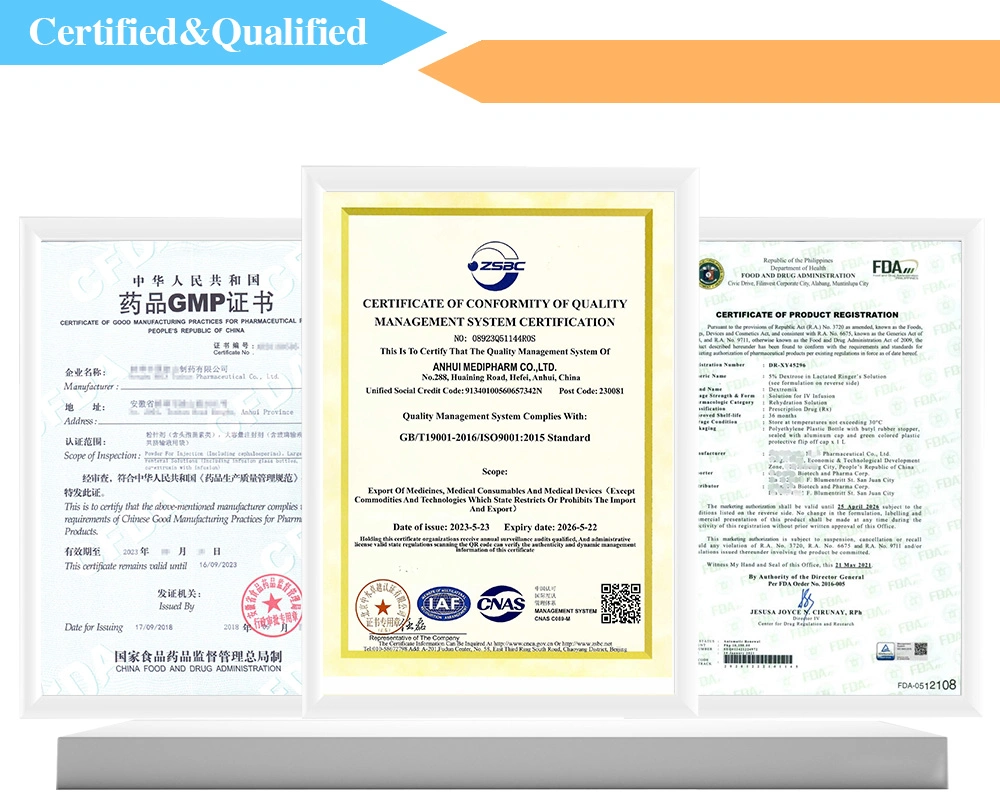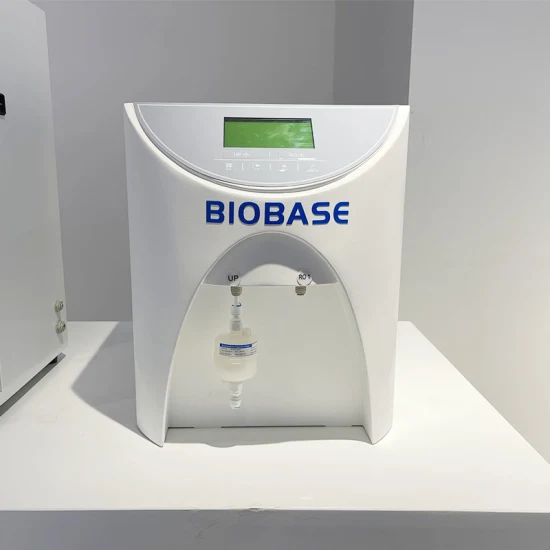
Clindamycin Phosphate Injection 600mg/4ml with GMP OEM
Basic Info.
| Model NO. | AMC14040-02 |
| Pharmaceutical Technology | Chemical Synthesis |
| Delivery Time | 30~60 Days |
| Function | Infections |
| Standard | Bp, Cp |
| OEM/ODM | Support |
| Transport Package | 5 S/Box |
| Specification | 600MG/4ML |
| Trademark | Shinepharm |
| Origin | China |
| HS Code | 3004909099 |
| Production Capacity | 1000000 Boxes/Month |
Product Description
Product Description
AMIKACIN SULFATE INJECTION 100MG/2ML
Indications:
Amikacin is indicated in the short-term treatment of serious infections due to susceptible strains of Gram-negative bacteria, including Pseudomonas species. Although amikacin is not the drug of choice for infections due to staphylococci, at times it may be indicated for the treatment of known or suspected staphylococcal disease. These situations include the initiation of therapy for severe infections when the organisms suspected are either Gram-negative or staphylococci, patients allergic to other antibiotics, and mixed staphylococcal/Gram-negative infections.
Dosage and Administration:
Amikacin sulphate injection may be given intramuscularly or intravenously.
Amikacin should not be physically premixed with other drugs, but should be administered separately according to the recommended dose and route.
The patient's pre-treatment bodyweight should be obtained for calculation of correct dosage.
For most infections the intramuscular route is preferred, but in life-threatening infections, or in patients in whom intramuscular injection is not feasible, the intravenous route, either slow bolus or infusion may be used.
Precautions & Warning:
Patients should be well hydrated during amikacin therapy.
Caution should be applied to patients with pre-existing renal insufficiency, pre-existing hearing or vestibular damage and diminished glomerular filtration. Patients treated with parenteral aminoglycosides should be under close clinical observation because of the potential ototoxicity and nephrotoxicity associated with their use.
If therapy is expected to last seven days or more in patients with renal impairment, or 10 days in other patients, a pre-treatment audiogram should be obtained and repeated during therapy.
Contra-indications:
Amikacin sulphate injection is contraindicated in patients with known allergy to amikacin or any component of the formulation.
A history of hypersensitivity or serious toxic reactions to aminoglycosides may contraindicate the use of any aminoglycoside because of the known cross sensitivities of patients to drugs in this class.
Aminoglycosides may impair neuromuscular transmission, and should not be given to patients with myasthenia gravis.
Drug interactions:
The concurrent or serial use of other neurotoxic, ototoxic or nephrotoxic agents.
Cephalosporins.
Potent diuretics
Beta-lactam antibiotics (In Vitro)
Bisphosphonates.
Platinum compounds.
Thiamine (vitamin B1)
Anaesthetics or muscle-relaxing drugs
Indomethacin
Storage instructions:
.Do not store above 25°C.
Amikacin Sulphate Injection Other Specifications:
CLINDAMYCIN PHOSPHATE INJECTION 600MG/4ML Indications: Antibacterial. Serious infections caused by susceptible Gram-positive organisms, staphylococci (both penicillinase- and non-penicillinase-producing), streptococci (except Streptococcus faecalis) and pneumococci. It is also indicated for the treatment of severe infections caused by susceptible anaerobic pathogens such as Bacteroides spp, Fusobacterium spp, Propionibacterium spp, Peptostreptococcus spp. and microaerophilic streptococci. Clindamycin does not penetrate the blood/brain barrier in therapeutically effective quantities. Dosage and Administration: Posology Adults: Serious infections: 600mg-1.2g/day in two, three or four equal doses. More severe infections: 1.2-2.7g/day in two, three or four equal doses. Single I.M. injections of greater than 600mg are not recommended nor is administration of more than 1.2g in a single one-hour infusion. Elderly: The half-life, volume of distribution and clearance, and extent of absorption after administration of clindamycin phosphate are not altered by increased age. Analysis of data from clinical studies has not revealed any age-related increase in toxicity. Dosage requirements in elderly patients should not be influenced, therefore, by age alone. See Precautions for other factors which should be taken into consideration. Paediatric population (over 1 month of age): Serious infections: 15-25mg/kg/day in three or four equal doses. More severe infections: 25-40mg/kg/day in three or four equal doses. In severe infections it is recommended that children be given no less than 300mg/day regardless of body weight. Method of administration Parenteral (IM or IV administration). Clindamycin Solution for Injection and Infusion should be used undiluted for IM administration. Clindamycin Solution for Injection and Infusion must be diluted prior to I.V. administration and should be infused over at least 10-60 minutes. Precautions & Warning: The use of Clindamycin Solution for Injection and Infusion may result in the overgrowth of non-susceptible organisms particularly yeasts. Prolonged administration of Clindamycin Solution for Injection and Infusion, as with any anti-infective, may result in super-infection due to organisms resistant to clindamycin. Care should be observed in the use of Clindamycin Solution for Injection and Infusion in atopic individuals. Clindamycin phosphate should not be injected intravenously undiluted as a bolus, but should be infused over at least 10-60 minutes. Contra-indications: Hypersensitivity to the active substance or to any of the excipients. Clindamycin Solution for Injection and Infusion is contra-indicated in patients previously found to be sensitive to lincomycin Drug interactions: Clindamycin administered by injection has been shown to have neuromuscular blocking properties that may enhance the action of other neuromuscular blocking agents. It should be used with caution, therefore, in patients receiving such agents. Vitamin K antagonists Increased coagulation tests (PT/INR) and/or bleeding have been reported in patients treated with clindamycin in combination with a vitamin K antagonist (e.g. warfarin, acenocoumarol and fluindione). Co-administration of clindamycin with inhibitors of CYP3A4 and CYP3A5 Clindamycin is metabolized predominantly by CYP3A4, and to a lesser extent by CYP3A5, to the major metabolite clindamycin sulfoxide and minor metabolite N desmethylclindamycin. Therefore inhibitors of CYP3A4 and CYP3A5 may reduce clindamycin clearance and inducers of these isoenzymes may increase clindamycin clearance. Storage instructions: Do not store above 25°C. Keep ampoules in the outer carton. Do not refrigerate or freeze. From a microbiological point of view, the product should be used immediately.
| |||||||||||


More Products:




